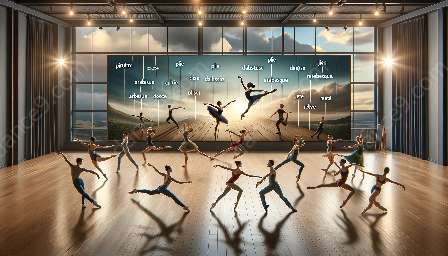Participating in dance competitions can be a thrilling and rewarding experience for students, offering them the opportunity to showcase their talent, build confidence, and receive valuable feedback. As a dance instructor or mentor, supporting student participants in these competitions is crucial to their growth and success. This comprehensive guide will explore various aspects of supporting student participants in dance competitions, providing valuable tips, strategies, and insights to help them thrive in this competitive and artistic environment.
Understanding the Importance of Support
Before delving into specific strategies, it's important to recognize the significance of providing support to student participants in dance competitions. These events can be both physically and emotionally demanding, and having a strong support system in place can make a significant difference in how students navigate and benefit from these experiences.
Building Confidence
One of the primary roles of a dance instructor or mentor is to help build the confidence of student participants. Competing in dance competitions requires a high level of self-assurance, and students may face challenges such as stage fright, self-doubt, or anxiety. By offering encouragement, positive reinforcement, and constructive feedback, instructors can empower their students to overcome these obstacles and perform at their best.
Mental and Emotional Preparedness
Supporting student participants also involves preparing them mentally and emotionally for the competition environment. This can include discussing coping mechanisms for stress, managing performance nerves, and fostering a positive mindset. Encouraging open communication and providing a safe space for students to express their concerns and fears can greatly contribute to their mental and emotional well-being leading up to the competition.
Preparation and Training
Effective preparation and training are essential components of supporting student participants in dance competitions. Instructors should ensure that students receive thorough and focused training in the specific style or routine they will be performing. This may involve refining techniques, perfecting choreography, and developing physical endurance. Additionally, instructors should create a realistic competition schedule that allows for adequate preparation without causing burnout or excessive stress.
Individualized Attention
Recognizing that each student has unique strengths and weaknesses, offering individualized attention is crucial in supporting their competition readiness. Tailoring training sessions to address specific areas of improvement can help students feel valued and motivated, ultimately enhancing their overall performance on the competition stage.
Stress Management
As the competition date approaches, instructors should provide guidance on effective stress management techniques. This may include incorporating relaxation exercises, meditation, or visualization practices into the students' training regimen. Teaching students to manage pre-competition jitters and stay focused under pressure is instrumental in their success.
Creating a Supportive Environment
In addition to individualized support, fostering a supportive and inclusive environment within the dance studio or team is essential. Promoting teamwork, collaboration, and camaraderie among students can help alleviate competition-related stress and create a sense of unity. Encouraging peer support and teamwork cultivates a positive atmosphere, where students feel motivated to push their boundaries and support each other's growth.
Open Communication
Establishing open lines of communication between students, instructors, and parents/guardians is vital in providing comprehensive support. As the competition approaches, maintaining transparency about expectations, feedback, and any necessary logistical information helps ensure that everyone is well-informed and prepared for the event. This transparent communication fosters trust and accountability, contributing to a harmonious and organized competition experience.
Post-Competition Reflection and Growth
Following the competition, supporting student participants involves reflecting on their performance and providing constructive feedback. Celebrating their achievements, regardless of the outcome, is important for bolstering their confidence and motivation. Engaging in thoughtful discussions about their strengths and areas for improvement helps students internalize the experience and evolve as dancers. Encouraging them to set new goals and aspirations, and providing ongoing support for their continuous development, is a fundamental aspect of nurturing their growth as dancers.
Community and Parent Involvement
Incorporating the broader dance community and engaging parents/guardians in the competition journey can further enhance the support system for student participants. Collaborating with other instructors, attending dance events, and involving parents/guardians in the preparation process strengthens the overall support network. This involvement not only enriches the students' experience but also reinforces a sense of community and shared commitment to their success.
Conclusion
Supporting student participants in dance competitions requires a multifaceted approach that encompasses physical, mental, and emotional support. By focusing on building confidence, providing comprehensive preparation, fostering a supportive environment, and facilitating post-competition growth, instructors and mentors can empower students to thrive and flourish in the competitive world of dance. Embracing these strategies and embodying a supportive mindset will not only enhance students' performance in competitions but also contribute to their overall growth as passionate and resilient dancers.











































